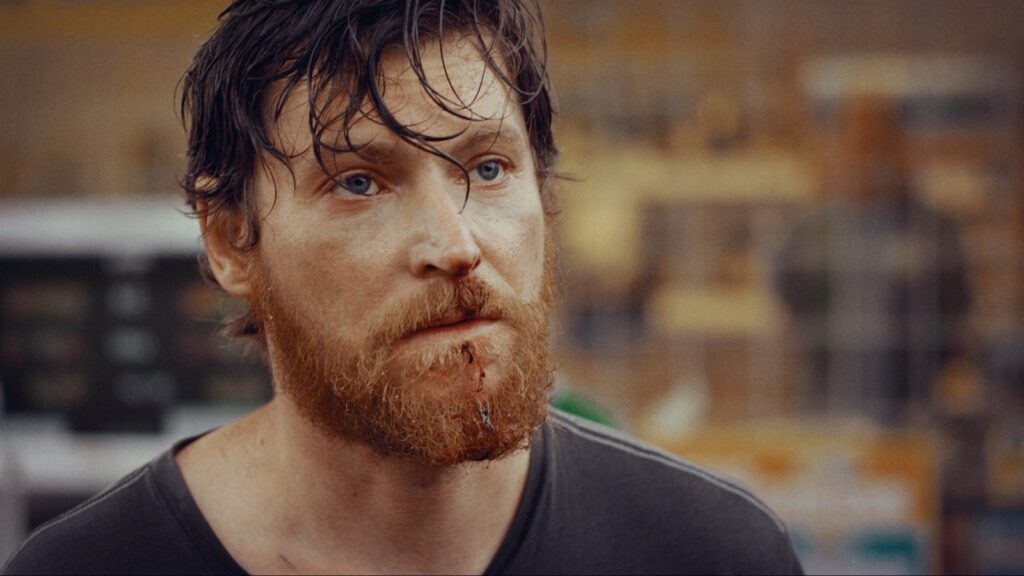
Over 168,000 moviegoers flocked to see “The Smiles of Sad Men” in 2018, making it the 7th most-attended domestic film of the year. This attendance figure is notable, especially since it was not a light romantic comedy but a deep dive into the pain and drama from within an alcohol treatment center. Given its success, it’s not surprising that much of the original team reunited for a sort of sequel. Once more, Dan Svátek took the helm as director, adapting a work from Josef Formánek, while Jakub Šimůnek assumed the role behind the lens. A familiar cast from “Smiles” also reprised their roles. However, the film wasn’t without its flaws.
The drama, set five years earlier, showcased a talented ensemble including David Švehlík, Jaroslav Dušek, Ivan Fraňek, Jaroslav Plesl, and Ondřej Malý. Each of these “sad men” portrayed a profound personal journey, typically revolving around how alcoholism ravaged promising careers or fulfilling relationships.
Their heartfelt performances, coupled with the movie’s compelling subject matter, garnered a fair amount of audience appreciation. But many viewers failed to recognize that the narratives were presented in such a condensed manner that the first half felt disjointed, like an elongated trailer. This presentation introduced multiple themes without adequately addressing or concluding them.
Formánek’s other work, “Two Words as a Key,” doubles down on this narrative style. It presents a compassionate and hopeful exploration of individuals worldwide, each grappling with life’s bigger questions and seeking self-understanding. Some characters from “Smiles” reappear in this film adaptation, bearing similar existential quests.
The film features Formánek’s literary doppelganger, Josef, portrayed by David Švehlík. Josef, now sober, leads a contented life with his wife (Marika Šoposká) and their two children in a serene countryside setting. He often contemplates life after death. His tranquility is disrupted by the character Tomáš (played by Ivan Franěk), who, while sober, struggles with personal relationships. Evading responsibility, Tomáš finds solace in his art. His world is shaken when he learns of an impending fatherhood, following an unplanned encounter with a fan (Diana Dulínková).
From battling the vices of alcoholism, we transition to the challenge of finding inner peace and self-understanding — a journey that’s never straightforward, even for those who have successfully resisted temptation. This personal quest drives Josef to take Tomáš to the Indonesian island of Siberut. There, with the aid of the indigenous Mentava tribe, they hope to delve deep into their psyche. Yet, their story is just one piece of a larger tapestry.
Concurrently, the film recounts the journey of a Japanese businessman (Gen Seto) nearing life’s end. He embarks on a pilgrimage to the Himalayas with his long-estranged daughter (Juki Iwasaki) — a trip she had dreamt of since childhood.
Furthermore, the narrative shifts to the Polish coast, where Tomáš’s ailing father (Daniel Olbrychski) resides. A former footballer, he once prioritized his career over family. In another subplot, Pierre Richard portrays a French priest in New York who not only oversees a parish and offers solace through cookies but also pens transformative letters. The enigmatic spiritual figure, Jaroslav Dušek, who made a mysterious exit in the first film, might just make a reappearance.
Also Read.
- Strays
- The Flash Movie Review: A Thrilling Journey through Time & Heroism
- Fast X, The Blockbuster Of Vin Diesel And Family
- Barbie: 10 Things You Didn’t Know About Film With Margot Robbie
- Mission: Impossible – Dead Reckoning – Part One: Things You Don’t Know About
- Barbie: Many Girls Started Wondering If Their Relationship Was Wrong After Watching The Movie
- Armageddon Time
- Blue Beetle
- Heart of Stone
